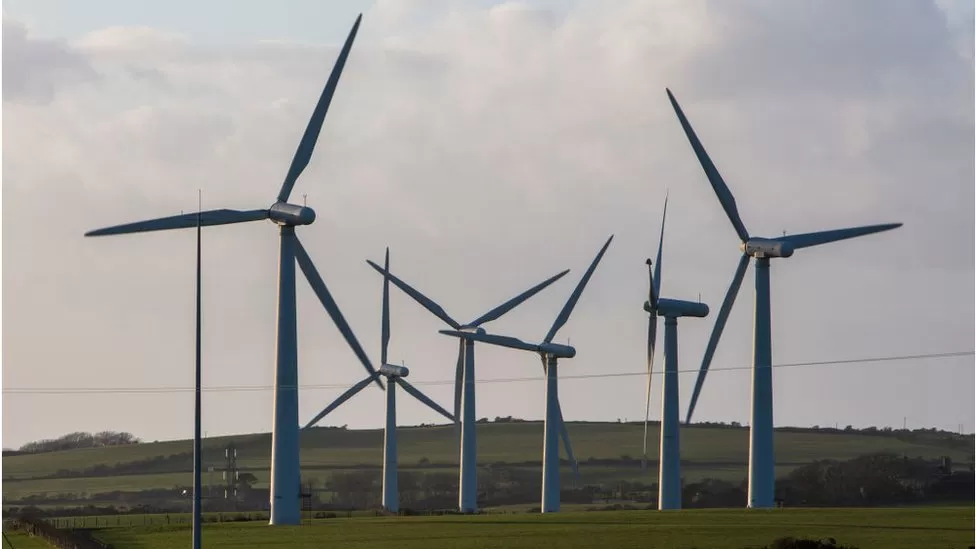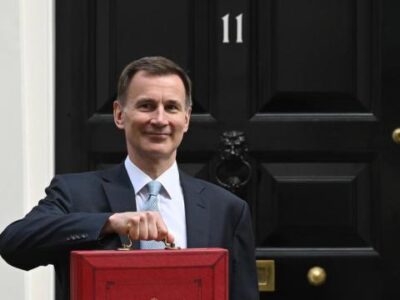A Labour government would lift a planning ban on new onshore wind farms, Sir Keir Starmer has vowed. Prime Minister Rishi Sunak’s refusal to back onshore wind “is about putting his party first, and the country second”, the Labour leader said. Mr Sunak scrapped a move by predecessor Liz Truss to relax planning rules to allow more onshore wind turbines. But Sir Keir said not backing onshore wind was a “national act of self-harm, choking off our economic potential”. Onshore wind is one of the cheapest forms of new power in the UK, and Sir Kier said that removing planning barriers would “slash energy bills”. Labour has already pledged to double onshore wind and quadruple offshore wind in its plan for clean power by 2030. Climate change: Is the UK on track to meet its targets? New £40m wind farm near Darvel gets green light During a visit to a wind farm in Grimsby, North Lincolnshire, on Thursday, Sir Keir said the plan would involve “persuading some communities to get on board”.

He said he would not hesitate to ditch the planning ban on onshore wind so that “we can create tens of thousands of good quality skilled jobs”, even if it “means some communities adapting to a new landscape”. Labour’s proposed planning changes include removing the loophole that allows a single person’s objection to stop an application, bringing planning requirements in line with other infrastructure and imposing new targets to get planning decisions on renewables down from years to just months. There would also be a crackdown on Whitehall blocking developments, and moves to proactively identify land for renewable energy opportunities However, a spokesperson for the Department for Business, Energy and Industrial Strategy said the UK government has “increased the amount of renewable energy capacity connected to the grid by 500% since 2010 – with 40% of our power now coming from cleaner and cheaper renewable sources”. “A record amount of renewable energy was secured through the latest round of our flagship scheme for incentivising large-scale renewable electricity generation. “We continue to support more renewable projects to come online, as clean, more affordable energy brings down costs for consumers and boosts our long-term energy security.” Mr Sunak told the House of Commons on Wednesday that the government would focus on offshore rather than onshore wind. “It is right that we bring people with us as we transition to net zero,” he said. “The worst thing we can do is alienate communities if we want to actually deliver on our climate commitments.”
![]()





